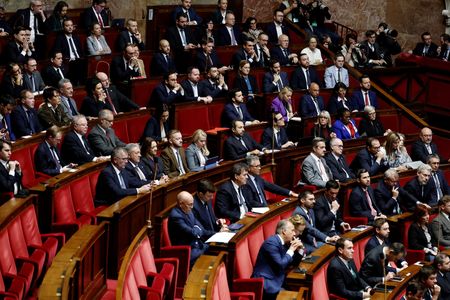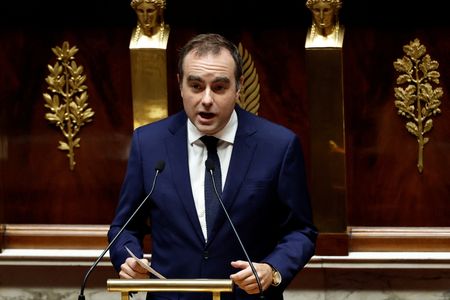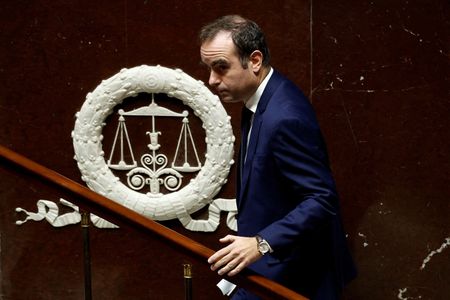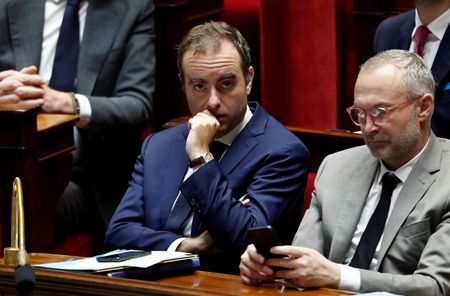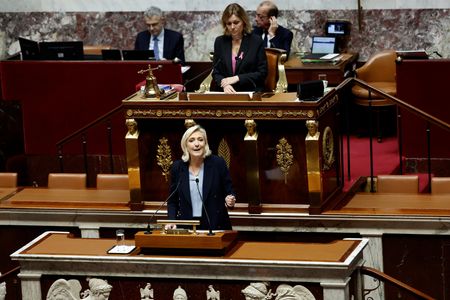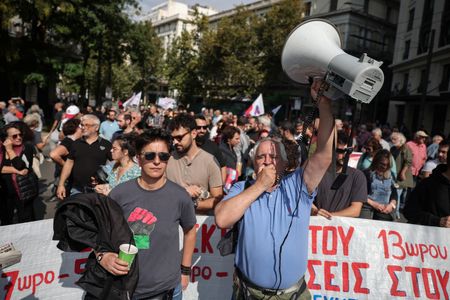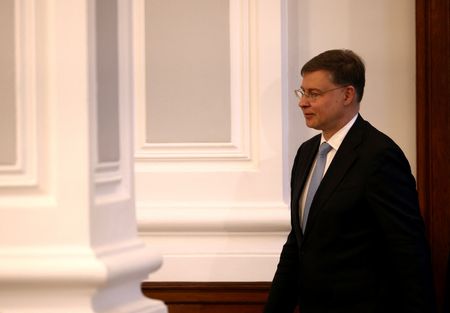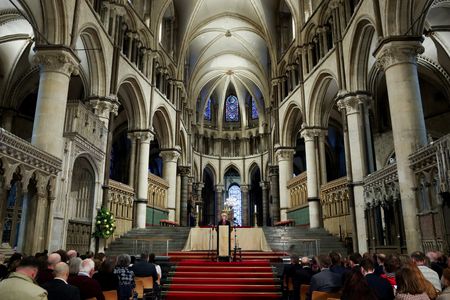By Elizabeth Pineau and Benoit Van Overstraeten
PARIS (Reuters) -French Prime Minister Sebastien Lecornu survived two no-confidence votes in parliament on Thursday, winning a temporary reprieve for his days-old government and the chance to deliver a budget for 2026.
Lecornu’s survival came at a hefty price. Earlier this week he pledged to suspend President Emmanuel Macron’s contested pension reform to secure crucial support from the Socialist Party in France’s deeply fragmented National Assembly.
And despite Thursday’s lifeline, the motions have underscored the fragility of Macron’s administration midway through his second and final term.
OPPOSITION SOCIALISTS WANT MORE CONCESSIONS
The Socialists had said they would vote down the government if its demands for more concessions in Lecornu’s belt-tightening budget were not met. Opponents on the hard-left and far-right painted the government’s win as a mere stay of execution.
“The Lecornu government is on borrowed time. The battle over the budget begins,” hard-left lawmaker Eric Coquerel, who heads the finance committee in the lower house, said on X.
The no-confidence motion presented by Coquerel’s hard-left France Unbowed party secured 271 votes, just 18 short of the 289 votes needed to fell the four-day-old government.
A second motion by Marine Le Pen’s far-right National Rally (RN) failed by a larger margin.
MACRON’S DOMESTIC LEGACY EVAPORATES
By putting the pension reform on the chopping block, Lecornu threatens to kill off one of Macron’s main economic legacies at a time when France’s public finances are in a perilous state, leaving the president with little in the way of domestic achievements after eight years in office.
If Lecornu had lost either vote, he and his ministers would have had to immediately resign, and Macron would have come under huge pressure to call a snap parliamentary election, plunging France deeper into crisis.
“A majority cobbled together through horse-trading managed today to save their positions, at the expense of the national interest,” RN party president Jordan Bardella wrote on X.
The French bond market remained steady after the back-to-back votes, with the government victory expected by investors.
LECORNU FACES ARDUOUS BUDGET NEGOTIATIONS
Lecornu now faces weeks of arduous negotiations in parliament over passing a slimmed-down 2026 budget during which he could be toppled at any point.
Debate begins in parliament’s finance committee on Monday.
Yael Braun-Pivet, the president of the National Assembly and an ally of Macron, said Thursday’s votes showed there was a majority in parliament for securing a budget.
“The French need to know that we are doing all this work… to give them a budget, because it is fundamental for the future of our country,” she told reporters.
After winning the pension concession, the Socialists have set their sights on including a tax on billionaires in the 2026 budget, underlining just how weak Lecornu’s hand is in the negotiations.
Lecornu’s draft budget proposes over 30 billion euros ($34.96 billion) in savings and driving France’s gaping deficit down to 4.7% of national output from a forecast 5.4% this year.
“Our decision not to vote the government down today is by no means a pact,” Socialist lawmaker Laurent Baumel told the chamber. “We are not committing to anything.”
POLITICAL KRYPTONITE
France is in the midst of its worst political crisis in decades as a succession of minority governments seek to push deficit-reducing budgets through a truculent legislature split into three distinct ideological blocs.
Reforming France’s generous pension system has been political kryptonite ever since Socialist President Francois Mitterrand cut the retirement age to 60 from 65 in 1982.
In France, the average effective retirement age is just 60.7, compared to the OECD average of 64.4.
Macron’s reform raised the statutory retirement age by two years to 64 by 2030. Although that only brings French policy into line with other European Union member states, it chips away at a cherished social benefit beloved by the left.
($1 = 0.8581 euros)
(Additional reporting by Gabriel Stargardter and Alessandro Parodi in Paris and Sudip Kar-Gupta in BrusselsWriting by Gabriel Stargardter and Crispian BalmerEditing by Gareth Jones)

